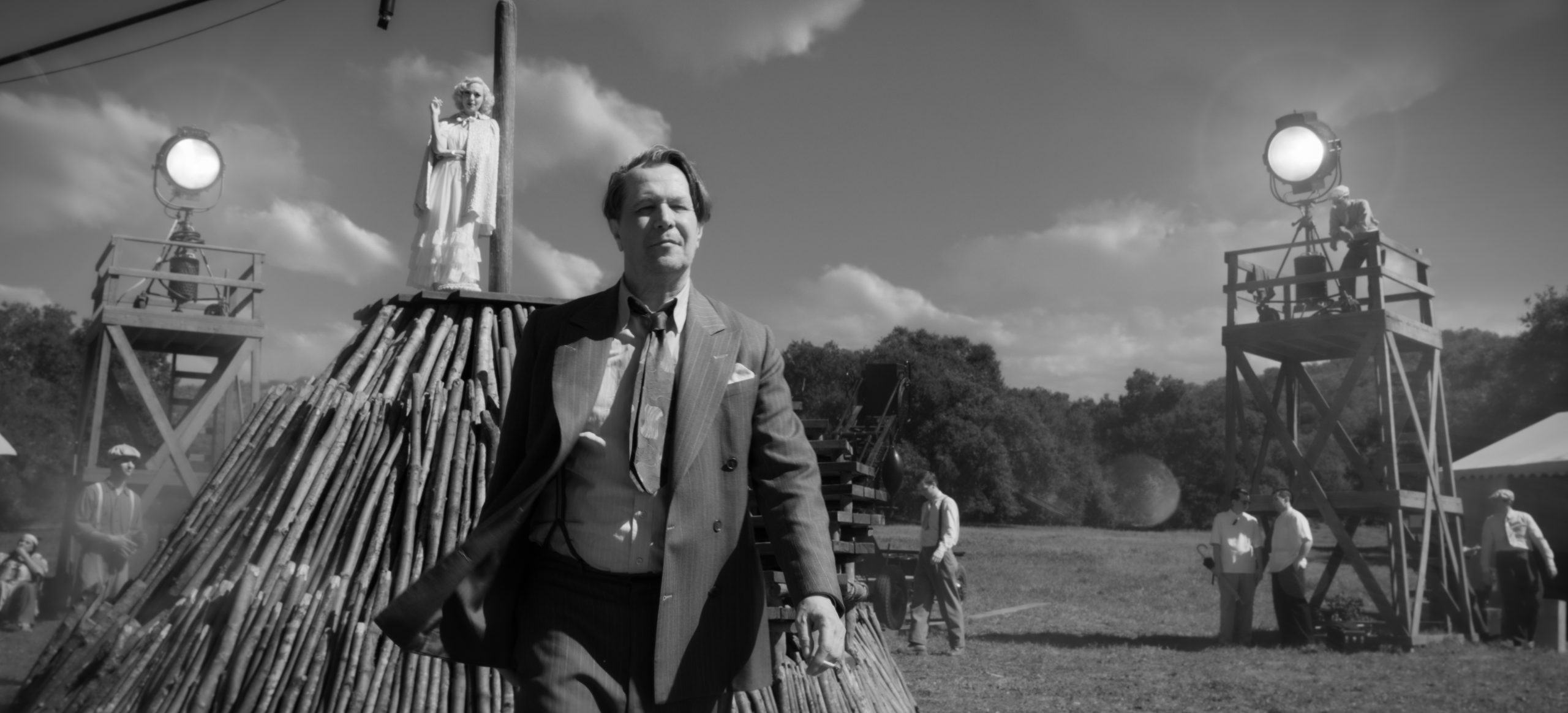
The outright fabrications in Mank are just too much to overcome in the David Fincher film and they have not sat well since viewing the film.
When it comes to Orson Welles, the film sides more with Pauline Kael’s discredited piece on the Citizen Kane origin. I understand she’s dead and cannot defend herself but history has largely proven her piece to be wrong on the matter. But here’s the thing: there are too many people out there that take biopics for fact and won’t even pick up a biography. I used my quarantine reading so far for educating myself about the Classic Hollywood studio moguls and directors to date. Okay, a few other books were thrown in but that’s beside the point. Going into my viewing of Mank, I had just finished reading Sydney Ladensohn Stern’s The Brothers Mankiewicz.
In terms of the Kane script, Welles historian Joseph McBride recently penned his thoughts about the film. McBride previously read Jack Fincher’s 1994 screenplay. Suffice it to say, the late Fincher’s script does not age well. That McBride is “sickened” by the film’s portrait of Welles. And again, this is just one part of the film. While the Kane script is one aspect, most of the film flashes back to the 1930s. Meanwhile, Matthew Dessem provides another well-written piece for Slate. Please read both pieces–you won’t regret it!
We cannot talk about this film without discussing the fabrications of the 1934 governor’s race in California. What this film does is outright invent fiction without any substantial proof. If the authorship of Kane is one strike against the film, this is a major strike requiring more than just a simple band-aid. It’s unjustifiable and to put it simply, it is unacceptable. The fictional director in the film ends his life early to suicide following a Parkinson’s diagnosis? How about what happened to the real director of the newsreels? He wouldn’t die until the mid-1960s! It’s at this point in the film where they add dramatic liberties solely for the point of needing necessary drama. Listen, there are other points on Hollywood history to find the drama.
The major through line in Mank isn’t so much Citizen Kane and the tie-ins to William Randolph Hearst but the 1934 governor’s race. In one corner, you have the Republican studio moguls supporting incumbent Frank Merriam. Over in the other corner, it’s Socialist author Upton Sinclair. MGM chief Louis B. Mayer was also the California Republican Party state chair and he threatened to move MGM if Sinclair got elected. Scott Eyman’s Mayer biography covers the election and MGM’s efforts. Where Joseph Mankiewicz did work on the anti-Sinclair attack ads, no proof exists when it comes to Herman Mankiewicz.
Knowing what I know about Herman Mankiewicz from reading biographies, I cannot in good conscience support Mank. I admit that there are technical aspects that deserve their praise and that may very well be so. I cannot support any film for best picture when they knowingly have outright lies throughout the film. When it comes to fabrications, Mank does for Classic Hollywood what Bohemian Rhapsody did for Queen.



